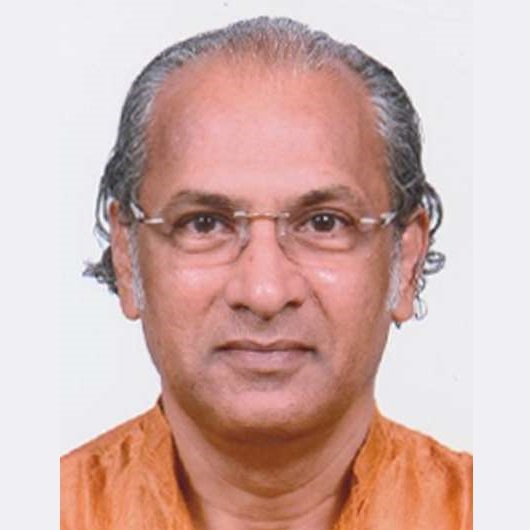Short lectures on Advaita and Universal Intelligence
1. "Universal Intelligence is to Know the Field and the Knower of the Field — An Advaitic Perspective Based on Śrīmad Bhagavadgītā 13.2"
Dr Radha Raghunathan
The term ‘Universal Intelligence’ suggests that it is present in all beings, at all places and at all times. One simple definition of Universal Intelligence in the Upaniṣads is that it is ‘Brahman’. And the Upaniṣads declare that the knower of Brahman ‘becomes,’ rather ‘is’, Brahman Itself. More so, “This Self is Brahman.’ Yet, our experiences, especially as helplessness, grief and sufferings, show that we remain ignorant about the nature of this Universal Intelligence and its free availability. Then, how are we to understand this Universal Intelligence and tap it whenever we need it?
All religions, faiths, philosophies and scriptures speak about Intelligence and its all-pervasiveness. Śrīmad Bhagavadgītā abounds with many methods of understanding and drawing from the Universal intelligence. Śrīmad Bhagavadgītā 13.2 suggests one method of understanding ‘Universal Intelligence.’ In it, Lord Kṛṣṇa says, ‘Knowing the Field and the Knower of the Field is considered by Me as Knowledge.” We shall try to understand this Knowledge, which in other words is Universal Intelligence, from an Advaitic perspective as shown by Śaṅkarācārya in his commentary to Śrīmad Bhagavadgītā.
2. “Advaita, self-Knowing and Universal Intelligence”
Sri Sankara Bhagavadpada
We all suffer because of an inherent dichotomy in our Divine architecture. We must be humble and honest enough to see that have that 'dark and sorrow-begetting energy' of the self on the one hand; and at a deeper level, we are verily already that Atma (primordial Awareness), Universal Intelligence and Love - all of which constitute our deeply nestled immortal Divine nature-but still to be discovered.
Firstly we must understand, the delusional process of duality (maya), its genesis, and the thousand ills which arise from it. That will legitimize our turning to Advaita, which is surely, the only available antidote for the deadly poisons of duality, separation, and sorrow.
The world teacher Sri. J. Krishnamurti (1895-1986) initiated a profound paradigm shift in the sphere of the spiritual and religious life: 'Inward Flowering through self-Knowing'. Invoking, this unheard-of self-Knowing, we have to discover how we may imperceptibly arrive at the doorstep of 'That', the primordial Reality, spoken of in the Upanishads provided we go to the very end of self-Knowing.
Our salvation will depend on whether we are able to genuinely discover that, 'That' primordial Reality, is already enshrined in the human spiritual heart. Likewise, whether we can actually discover that the Universal Intelligence, is also already enshrined in the sanctum sanctorum of the human spiritual heart. Significantly, this Indescribable Universal Intelligence, is worshipped in the scriptures as 'That', as Prajnya, as Mahadeva, as Mahavishnu, as the Father in Heaven, as Parabrahma, as our one and only Refuge, as Godhead.
In summing up, taking as a whole; both the culmination of self-Knowing in the 'Awakening of Intelligence' - as pointed out by the world teacher, Sri. J. Krishnamurti; - and the original Intention of the visionary founders of the Theosophical Society in 1875; we seem to be witnessing the magnificent completion of a Theosophical world symphony for world welfare. If each of us can turn inward, awaken to sorrow, understand that sorrow and bring the momentum of that sorrow to an end through self-Knowing; then I believe, we as Theosophists, as noble human beings will be adding our substantial share to building a saner, happier, more honest and compassionate world. This will be Loka Kalyana at its very best.


